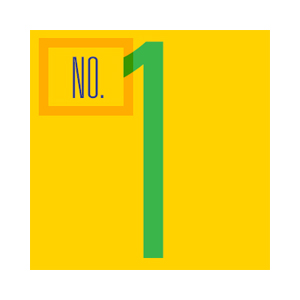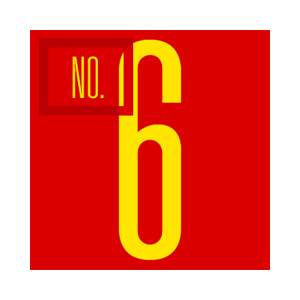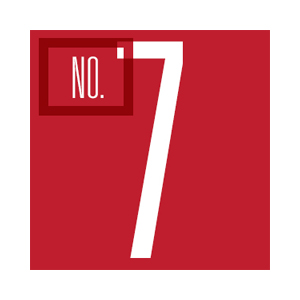Some legendary teams have competed at the FIFA World Cup, capturing the collective imagination of fans from around the globe with their inspiring and inventive play.
From the inaugural 1930 competition in Uruguay to the last tournament in 2014 staged in Brazil, the World Cup has been graced by moat of the game’s greatest stars – Pele and Diego Maradona foremost among them – who led their nations to glory on the sport’s biggest stage.
Other countries, such as the Johan Cruyff-led Netherlands, fell achingly short of lifting the trophy, but still managed to dazzle and delight, winning a special place in the hearts of fans.
But which clubs are the greatest of the great? Here are the 10 greatest World Cup teams of all-time.

 Regarded by most historians and critics as the greatest soccer team of all time. The Brazilian squad that competed in Mexico boasted a slew of legendary players — Pele, Jairzinho, Tostao, Rivelino and Carlos Alberto — and won all six of its games en route to becoming the first nation to win three World Cups.
Regarded by most historians and critics as the greatest soccer team of all time. The Brazilian squad that competed in Mexico boasted a slew of legendary players — Pele, Jairzinho, Tostao, Rivelino and Carlos Alberto — and won all six of its games en route to becoming the first nation to win three World Cups.
It’s fitting that the 1970 World Cup was the first to be broadcasted on TV in colour. While most other teams employed a predictable black and white approach, Brazil thrilled the Mexican crowds with its brilliant Technicolor style, especially in the final when they thrashed the dour and defensive Italians before more than 100,000 fans jammed inside of Mexico City’s iconic Estadio Azteca.


 An incredibly talented team, with captain Franz Beckenbauer, goalkeeper Sepp Maier and goal-scoring machine Gerd Muller serving as the linchpins. The Germans overcame a shocking first-round loss to lowly East Germany to win their second World Cup, much to the delight of the homenation fans. That the Germans were able to win the final in Munich by overcoming Johan Cruyff and a Netherlands side that was at the height of its “Total Football” revolution, made their victory all the more memorable.
An incredibly talented team, with captain Franz Beckenbauer, goalkeeper Sepp Maier and goal-scoring machine Gerd Muller serving as the linchpins. The Germans overcame a shocking first-round loss to lowly East Germany to win their second World Cup, much to the delight of the homenation fans. That the Germans were able to win the final in Munich by overcoming Johan Cruyff and a Netherlands side that was at the height of its “Total Football” revolution, made their victory all the more memorable.

 The Azzurri started slowly in Spain, tying all three of their opening round games – including against World Cup debutantes Cameroon – and only managed to scrape into the quarter-finals by the skin of their teeth. Once they made it to the knockout stage, however, the Italians underwent an amazing transformation, dispatching defending champions Argentina (with Diego Maradona), a Brazil side many said was even better than the 1970 team, Poland in the semifinals and a dangerous West German team in the final. The victory by the 1982 team, led by Paolo Rossi’s tournament-leading six goals, is proof that anything is possible.
The Azzurri started slowly in Spain, tying all three of their opening round games – including against World Cup debutantes Cameroon – and only managed to scrape into the quarter-finals by the skin of their teeth. Once they made it to the knockout stage, however, the Italians underwent an amazing transformation, dispatching defending champions Argentina (with Diego Maradona), a Brazil side many said was even better than the 1970 team, Poland in the semifinals and a dangerous West German team in the final. The victory by the 1982 team, led by Paolo Rossi’s tournament-leading six goals, is proof that anything is possible.


 Led by the unrivalled Zinedine Zidane, Les Bleus romped on home soil to its first World Cup crown, and in considerable style. France put Italy and Croatia to the sword in majestic fashion in the knockout round before humiliating the favoured Brazilians in the final with an emphatic 3-0 victory. France were champions of the world and over a million French fans danced the night away on the Champs Elysées.
Led by the unrivalled Zinedine Zidane, Les Bleus romped on home soil to its first World Cup crown, and in considerable style. France put Italy and Croatia to the sword in majestic fashion in the knockout round before humiliating the favoured Brazilians in the final with an emphatic 3-0 victory. France were champions of the world and over a million French fans danced the night away on the Champs Elysées.


 Often overshadowed by the 1970 team, Brazil’s 1958 squad was equally brilliant. Unknown to the world at the start of the tournament, a 17-year-old Pele became a global icon by leading Brazil past a Swedish team packed with superstars to win its first World Cup title, making amends for losing the World Cup on home soil to Uruguay eight years earlier. The 1958 Brazilian side is still the only South American team to win the World Cup on European soil.
Often overshadowed by the 1970 team, Brazil’s 1958 squad was equally brilliant. Unknown to the world at the start of the tournament, a 17-year-old Pele became a global icon by leading Brazil past a Swedish team packed with superstars to win its first World Cup title, making amends for losing the World Cup on home soil to Uruguay eight years earlier. The 1958 Brazilian side is still the only South American team to win the World Cup on European soil.

 Fresh off winning Euro 2008, Spain entered the World Cup as the favourites. A 1-0 loss to Switzerland in their opening game cast some doubts, and many thought the Spaniards would once again return to their underachieving ways. But La Roja quickly rebounded, and their tiki-taka brand of soccer overwhelmed their opponents the rest of the way, with Andres Iniesta scoring the extra time winner against the Netherlands in the final in Johannesburg.
Fresh off winning Euro 2008, Spain entered the World Cup as the favourites. A 1-0 loss to Switzerland in their opening game cast some doubts, and many thought the Spaniards would once again return to their underachieving ways. But La Roja quickly rebounded, and their tiki-taka brand of soccer overwhelmed their opponents the rest of the way, with Andres Iniesta scoring the extra time winner against the Netherlands in the final in Johannesburg.


 The greatest team never to win the World Cup. Led by the legendary quartet of Ferenc Puskas, Sandor Kocsis, Nandor Hidegkuti and Jozsef Bozsik, the “Magical Magyars” were the overwhelming pre-tournament favourite in Switzerland. Gold-medal winners at the 1952 Helsinki Olympics, Hungary was unbeaten in 28 games (with 24 wins) prior to the World Cup, but fell victim to a miraculous comeback in the final against the West Germans in Berne. It was their only loss in 50 international matches between 1950 and 1956.
The greatest team never to win the World Cup. Led by the legendary quartet of Ferenc Puskas, Sandor Kocsis, Nandor Hidegkuti and Jozsef Bozsik, the “Magical Magyars” were the overwhelming pre-tournament favourite in Switzerland. Gold-medal winners at the 1952 Helsinki Olympics, Hungary was unbeaten in 28 games (with 24 wins) prior to the World Cup, but fell victim to a miraculous comeback in the final against the West Germans in Berne. It was their only loss in 50 international matches between 1950 and 1956.

 The magical Diego Maradona dominated the tournament in Mexico, but this was hardly a one-man team. Maradona was ably abetted by the hard-working Jorge Luis Burruchaga, the sublime talents of Jorge Valdano, and Oscar Ruggeri, the latter a solid presence in the centre of Argentina’s defence. With Maradona at his devilish best — Hand of God, anyone? — the Mexican crowds adopted Argentina as their team, as the South American nation won its second World Cup.
The magical Diego Maradona dominated the tournament in Mexico, but this was hardly a one-man team. Maradona was ably abetted by the hard-working Jorge Luis Burruchaga, the sublime talents of Jorge Valdano, and Oscar Ruggeri, the latter a solid presence in the centre of Argentina’s defence. With Maradona at his devilish best — Hand of God, anyone? — the Mexican crowds adopted Argentina as their team, as the South American nation won its second World Cup.


 Another fantastic team that somehow did not win the World Cup. Featuring the likes of the incomparable Johan Cruyff and Johan Neeskens, the Dutch mesmerized fans and opponents alike with an attacking brand of “Total Football.” Stylish and sleek, the Netherlands toyed with the Germans in the final, but failed to put them away when it had the chance.
Another fantastic team that somehow did not win the World Cup. Featuring the likes of the incomparable Johan Cruyff and Johan Neeskens, the Dutch mesmerized fans and opponents alike with an attacking brand of “Total Football.” Stylish and sleek, the Netherlands toyed with the Germans in the final, but failed to put them away when it had the chance.

 The Germans roared out of the gate in Brazil, hammering Portugal 4-0 in their opening game. The U.S. and Ghana provided stiffer competition in the group stage, as did Algeria in the Round of 16. Germany then shifted into high gear, beating France in the quarterfinals and completely embarrassing the hosts 7-1 in the semis. Argentina and Lionel Messi awaited them in the final, and though it took extra time to do it, Germany emerged victorious, claiming its fourth World Cup crown and becoming the first European nation to win the tournament in South America.
The Germans roared out of the gate in Brazil, hammering Portugal 4-0 in their opening game. The U.S. and Ghana provided stiffer competition in the group stage, as did Algeria in the Round of 16. Germany then shifted into high gear, beating France in the quarterfinals and completely embarrassing the hosts 7-1 in the semis. Argentina and Lionel Messi awaited them in the final, and though it took extra time to do it, Germany emerged victorious, claiming its fourth World Cup crown and becoming the first European nation to win the tournament in South America.




